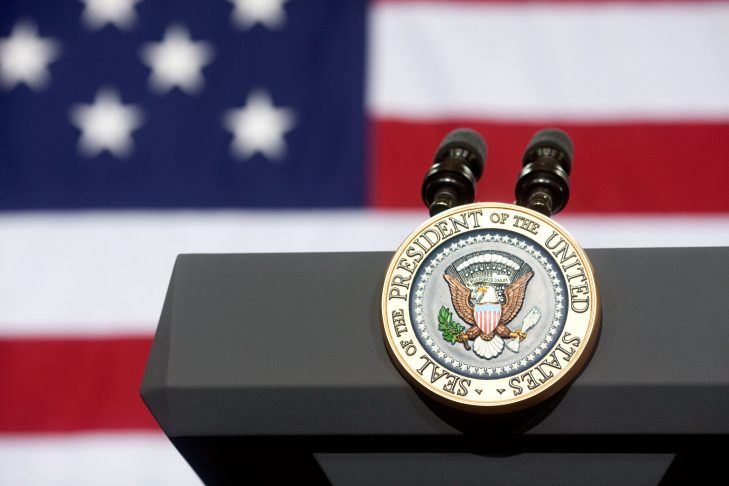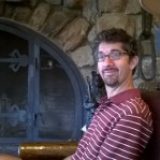When Rabbi Abba Cohen attended the White House roundtable on antisemitism last Wednesday, he was impressed by the multiple representatives of the Biden Administration.
“Between Mr. Emhoff and Ambassador Rice and Ambassador Lipstadt, the foundation was laid for a good discussion,” Cohen said, referring to Jewish Second Gentleman Doug Emhoff, director of the U.S. Domestic Policy Council Susan Rice and U.S. Special Envoy for Monitoring and Combating Antisemitism Deborah Lipstadt.
As for Cohen, he was representing the Orthodox organization Agudath Israel of America as its vice president for government affairs. Agudath was one of multiple participating organizations—a list that ranged from the Anti-Defamation League (ADL) to the American Jewish Committee (AJC).
“I think there was a lot of diversity of views,” Cohen said. “A lot of [Jewish representatives] were coming from different life experiences, different vantage points.” Yet, he said, there were some common denominators, including “the mainstreaming of antisemitism.”
This mainstreaming was also noted by a fellow participant, George Selim, ADL senior VP for national affairs.
“We are experiencing a perfect storm of rising antisemitism,” Selim said in a statement. “Antisemitic tropes and conspiracy theories are being normalized and mainstreamed through social media, celebrities, in politics and across society. We are incredibly gratified that the Biden Administration is committed to taking this threat seriously and is determined to use all of the tools at its disposal to counter these trends.”
Michael Masters, national director and CEO of the Secure Community Network (SCN), appreciated the diversity of organizations sharing their views. “It was heartwarming to see so many different organizations and groups represented in the roundtable,” Masters said. “Each represented different components of the Jewish community, with the united mission of creating a safe and secure Jewish community.”
Topics of discussion included antisemitism on social media and on college campuses, as well as the issue of security.
Based in Chicago and New York, SCN describes itself on its website as the North American Jewish community’s official safety and security organization. The organization states that Jews are targeted for 60% of religion-based hate crimes, despite representing just 2% of the U.S. population.
Asked about the greatest security needs of the community, Masters replied: “I think creating conditions so that members of the community can participate fully in Jewish life without feeling they’re going to be harmed or victimized because they’re Jewish. That serious threat manifests itself in a number of ways—cyber, physical, online.”
Meanwhile, Cohen focused on two particular Orthodox-centered threats: local zoning laws can prevent Orthodox Jews from living within walking distance of a synagogue to satisfy halacha, and officials sometimes pursue such policies to discriminate against the Orthodox. He also voiced concern over hate crimes targeting the Orthodox because they visibly identify as Jews.
“Too often, we find a very blatant, intentional basis for the zoning laws to keep Jews out, particularly Orthodox Jews out,” he said. “We witnessed hearings saying so, in so many words—‘we don’t want that community, those people, to move in.’ This has been a form of antisemitism growing over the past several years.”
Cohen also expressed concern for incidents of assault and harassment against identifiably Jewish people, some of which have been captured on video.
“We have not developed a good enough response to address these kinds of issues,” he said. “They are not the cases that hit the news…that grasp people’s attention or encourage government to act or communities to act. They are individual cases of more and more people getting assaulted on the streets.” He added: “These kinds of incidents instill 24-7 fear in people who are afraid to go to the synagogue, shopping, to school. Kids are afraid to go out and ride their bike. In a way, it’s a very serious, very painful kind of antisemitism.”
When it came to next steps, the ADL’s Selim had tangible recommendations.
“ADL deeply appreciates the important steps that the White House has taken so far to fight this rise in antisemitism at home and around the world, but our work has only just begun,” he said. “The administration needs to adopt a unified national strategy to meet the moment of the day most effectively. We continue to urge lawmakers, policy leaders and civil society to speak out and condemn antisemitism wherever they see it, and ADL adds its unequivocal support to that of over 120 members of Congress calling on the Administration to form an interagency task force to address antisemitism.
“While there is no single fix to this alarming trend, the president’s recent condemnation of Holocaust denial and distortion, and his unequivocal statement that ‘Silence is complicity,’ lay down an important marker,” Selim added. “This is the right moment to send a message to the American Jewish community and our international partners that the United States is dedicated to taking concrete steps to counter antisemitism before it spirals out of control.”



